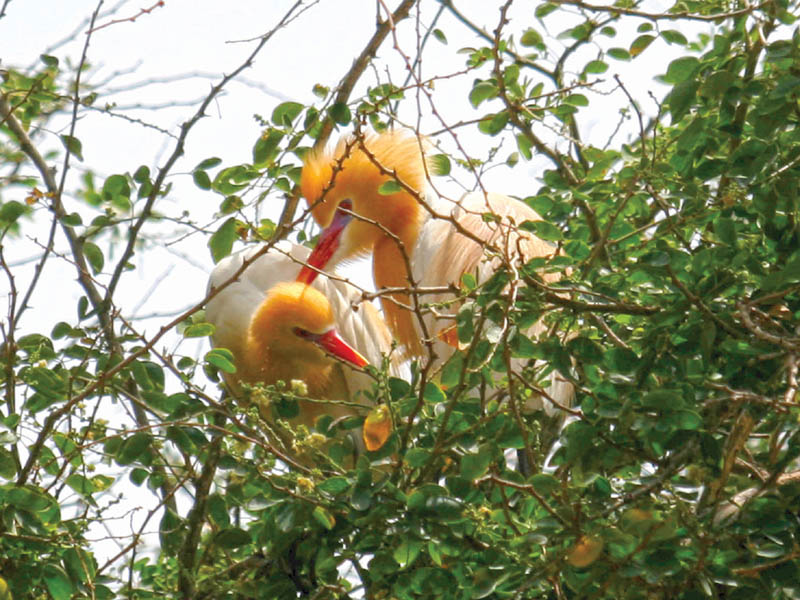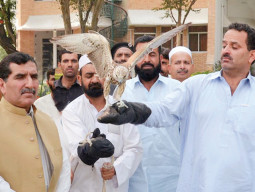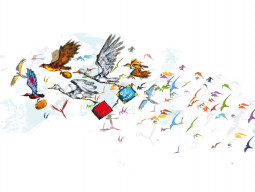
KARACHI:
Look up towards the sky at most places in the city and what you will probably find is a skyscraper hiding the face of the sun. Massive commercialisation and over-construction to cater to the needs of the human residents have left no space for other species that used to co-inhabit the city.
The good old days
It is not just the wildlife experts but also the citizens who have felt the decrease in the number of birds that once inhabited every nook and cranny of Karachi. The city of lights was famous for its native birds - the Koel, the vultures, the white-checked bulbul, the ring parakeets that were a pleasant nuisance for the residents.
Then there was the Jacana, which was a sight to see as it hopped on dried leaves with its paw-like feet. Older residents also recall frequent sightings of the falcon and the owls in almost every tree in the neighbourhoods. What is rather alarming is the fact that even the more common birds, such as the house crow, house sparrow, common mynah, doves, hoopoes, wheatears, starlings, baya weavers, are largely missing from the rooftops, hanging wires and electricity poles where they once commanded a domineering presence.

The city boasts plenty of wetlands and water bodies, such as the Malir and Lyari rivers, which once promised a variety of birds to be viewed around the year. There was a time when one could count 20,000 birds at Do Dariya in a single day. Older residents recall how several varieties of the birds used to plague their homes, trees and electricity poles around the year.
In the early 80s, Dr Manzoor Ahmed of Karachi University wrote a paper, titled ‘Birds of Karachi’, which accounted for the different kinds of birds that inhabited the city. Since then, no one has bothered to follow-up on his study or keep an eye on where the birds disappeared to and why.
Cause for concern
The environmental experts see no natural cause behind the disappearance of birds. WWF-Pakistan’s technical adviser Muhammad Moazzam Khan was of the view that the reason for the disappearance of birds are several, including habitat degradation, lack of attention towards the salvation of wetlands, jungles of exotic plants, growing population and pollution. “Birds have migrated to safer places,” he observed. “They could come back to the city if their habitats are revived.”
The city has no shortage of fresh water, he pointed out. “Urban wetlands are being restored across the globe and we need to follow that trend as well,” he advised. “I used to see lines of birds at Mai Kolachi, Mauripur, Hawke’s Bay and other areas of the city,” recalled the deputy commissioner of Sindh wildlife department, Dr Fehmida Firdous.
She said that common birds, such as crows and kites, were found everywhere in the city but not those that balanced the eco system. “Our department conducts a birds’ census every year and we have observed a decline in numbers with each passing year.” The changing climate, encroachments, decrease of natural habitats, deforestation and shortage of rainfall are some of the major reasons for the disappearance of birds for Dr Firdous.
“We cannot single out any one reason for this disorder,” she said. “Industrial pollution is also a major reason that has adversely affected marine birds. There is no monitoring system on the effluents directed into the sea,” she complained. Meanwhile, senior citizen Haji Abdullah blamed commercialisation to be the sole reason for the decline. “No space is left for the birds. The land and birds are for sale only. Who cares where they have gone?”
Published in The Express Tribune, October 24th, 2013.























































COMMENTS
Comments are moderated and generally will be posted if they are on-topic and not abusive.
For more information, please see our Comments FAQ